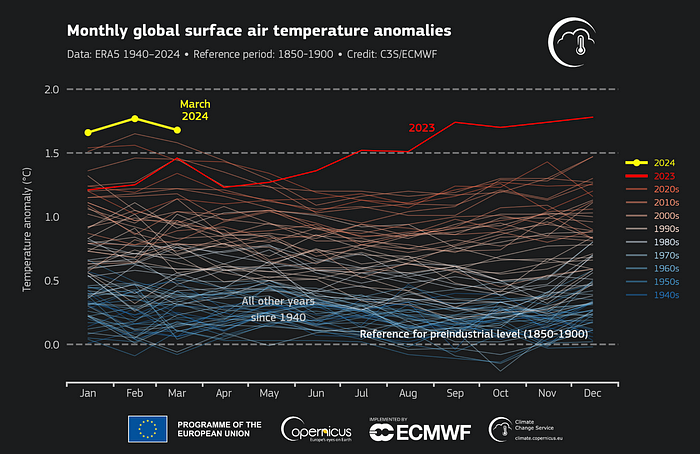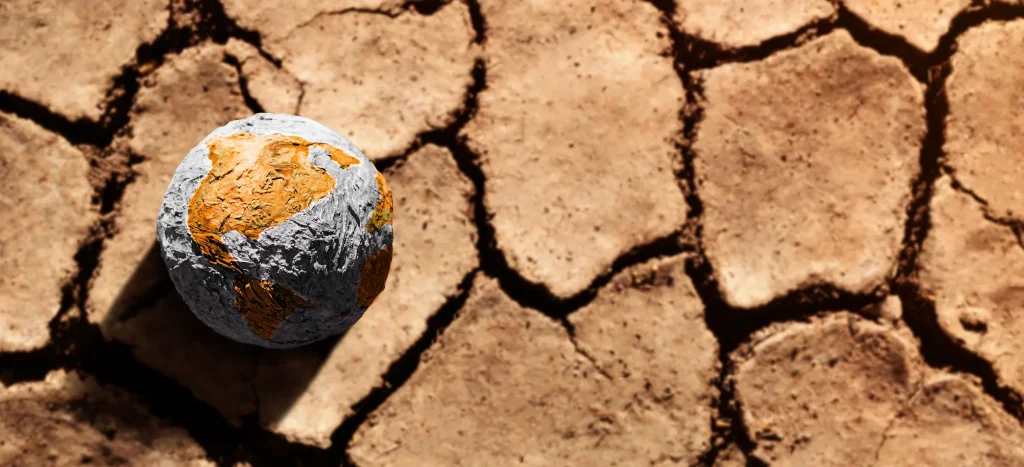This week began by celebrating the fifty-third World Earth Day when the same urgency emerges from every corner of our planet- coral reefs to glaciers, forests to deserts- time is up. In other words, we have said far too many, and now all we have left is to act and react. At this critical, unprecedented time, this anniversary is not and cannot be just an anniversary, a carousel on social media, or an event; it must be a reminder that calls us to think deeply about the need to take concrete action.

In the last fifty-three years, we have made progress and witnessed essential changes in global climate policies, but not yet radical ones, and it is clear that more is needed. Day by Day, it is becoming increasingly clear that the wounds inflicted on our planet over time are causing devastating consequences. And the scars, if left untreated, can prove fatal. The news released by Copernicus that March 2024 is the tenth warmest consecutive month on record is just one of the countless warning signs we cannot ignore. But this is the point: we can no longer “just” talk. If fifty-three years ago, this Day represented a cry for awareness, today it must turn into an engine for action. Today, awareness alone is no longer enough. As much as being aware of a problem is undoubtedly the first step toward solving it, however, by itself, awareness is not the solution. Only through concrete and measurable actions can we change the course of events and try to safeguard the future of our planet.
A rallying cry and concrete initiatives are essential in a world where climate warning signs are the order of the Day. By founding the Future Food Institute 10 years ago, I wanted to give our factual response to the signs of suffering on our planet, starting with food and water, our basic needs. Food is life and nourishment; it is a vehicle of values, culture, and identity; food is sociality. The great challenge of our era is to preserve the planet, healthily nourish humans, and take care of the ecosystem that hosts it. Humanity will only be able to adapt to the significant changes we are experiencing by re-learning to understand the value of food and to reconnect with food, those who produce, distribute, process, and share it. Eating is essential for human life, but it requires consciousness and awareness. We have done this with the many innovation projects in our living labs, especially by training tens of thousands of people to become climate shapers. Finally, the world is beginning to understand that everything is connected. Food security and climate change are interconnected. I believe my recent appointment to the Commission on Food Security in Geneva, “Food Security: Re-imagining Global Governance” by the Kofi Annan Foundation, supported by the Rockefeller Foundation, fully represents this realization.

